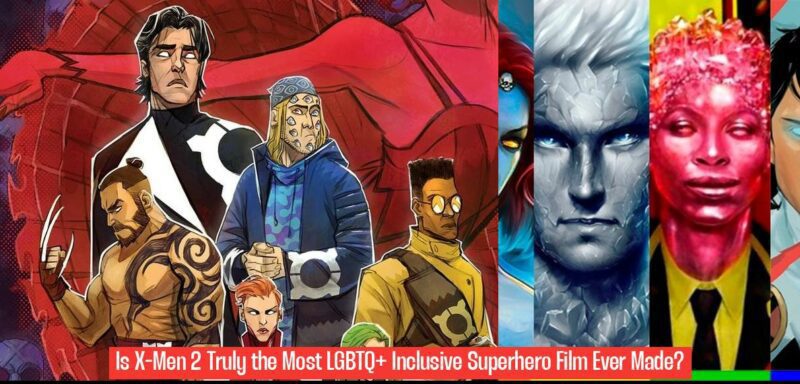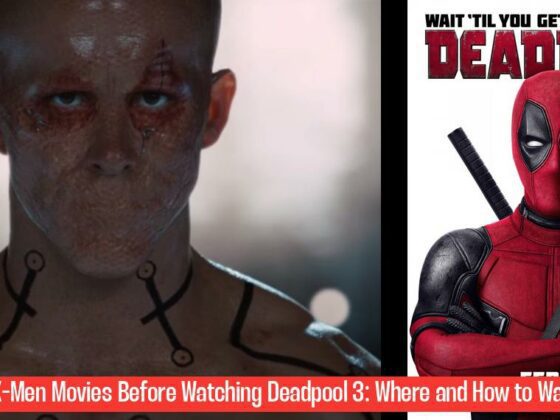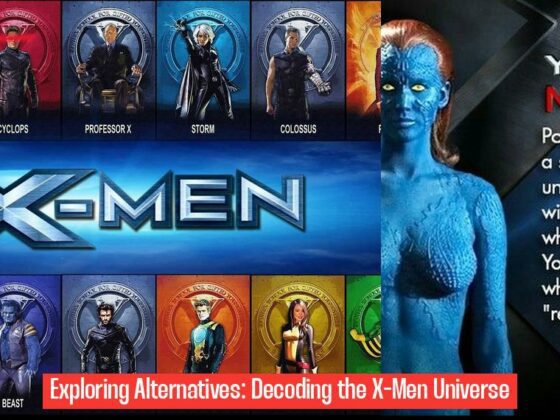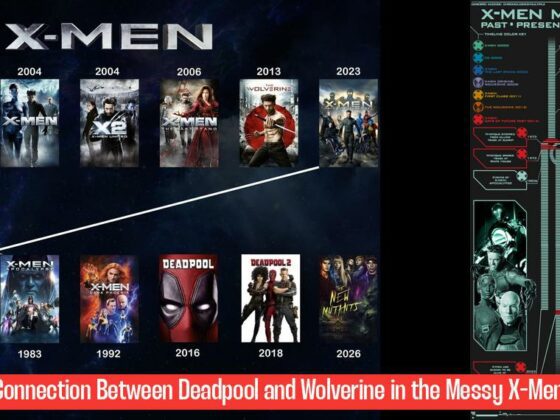‘X-Men 2 really is the gayest superhero movie ever made’
The X-Men are gay. It’s an irrefutable fact, like water is wet or Magneto was right. And it’s true on many levels too. Metaphorically speaking, this story of mutants ostracized just for being different has spoken to queer fans — and many other marginalized groups — for the past six decades. More recent years have given us actual queer representation in the X-Men too, from Iceman, aka Bobby “Bottom” Drake, to Northstar’s wedding, the recent addition of a trans mutant named Escapade, and of course, Gambit’s crop top in X-Men ’97, not to mention Morph’s unrequited love for Logan.
But when it comes to the X-Men’s numerous appearances in live-action, the gayest entry is undoubtedly 2003’s X-Men 2, awkwardly titled X2 or X2: X-Men United depending on where you’re reading this. That’s still true, even now, twenty years later, and there’s an argument for it also being the gayest superhero film made in general, which is kind of sad when you think about how far we should have come in the two decades since. At the very least, it’s the gayest film Alan Cumming has ever starred in. His words, not ours. And that’s really saying something given he’s also been in Spice World, Burlesque, and Josie and the Pussycats.
So what makes X2 particularly gay for the Nightcrawler star? Speaking recently to EW, Cumming explained that his sole appearance in the X-Men franchise is “an allegory about queerness, about people having these great gifts and really great, powerful things that they have to hide to exist. Queer people understand what that’s all about.” As Cumming goes on to point out, X2 also has a queer director, although the less said about Bryan Singer — following numerous sexual assault allegations made against him, which he denies — the better.
You know who is unfairly regarded with “fear, suspicion, and often hatred” though? The X-Men themselves, as Professor Charles Xavier reminds us in the film’s opening voice over. From that point on, X2 is about as gay as you can get for a mainstream blockbuster in 2003 (even if Halle Berry’s Storm wig does feel somewhat homophobic). The most obvious example, the one that’s often cited most by fans looking back at X2, is when Bobby “comes out” to his parents as a mutant.
X-Men 2: A Masterclass in LGBTQ+ Allusions
The scene where Bobby “comes out” to his parents as a mutant is one of the most powerful moments in the film. “When did you first know you were a mutant?” Iceman’s mother responds. “Bobby, have you tried not being a mutant?” It’s the kind of questioning that’s all-too-familiar for queer people watching back home, especially those who came of age in the early noughties when this film was first released. What’s funny though is how the truth behind this scene probably flew over the heads of most straight fans who presumed that Bobby having a girlfriend meant he couldn’t be queer or at least queer-adjacent in some way.
Never mind the look he gives Wolverine when he blows on his beer for him. Or how kissing his girlfriend, Rogue, physically drains Bobby of his life essence, an experience that might be surprisingly resonant for gay teens who might have tried or pretended to be straight. Then there’s William Stryker’s son, Jason, who was once sent to Xavier so the boy could be “cured” of his affliction. When that didn’t work, the Colonel controlled Jason instead, manipulating his own son to turn him against his fellow mutants. What’s great about X2 though is that the queer trauma of it all doesn’t overwhelm the narrative or preclude joy as well. Even if the metaphors hadn’t been metaphoring as hard as they did, there’s still plenty for queer fans to enjoy too.
Who can forget the moment when all the kids wake up to the X-Mansion raid and then we suddenly cut to 22 year old Daniel Cudmore wearing nothing but boxers in bed? Boom! Bicep. Boom! Pecs. His take on the mutant Colossus doesn’t get a colossal amount of screentime, but younger me was still grateful for all 199cm of him regardless.
More Than Just Metaphors: X2’s Gay-Positive Moments
It wasn’t just the men who fed us either. Storm and Jean, perennial gay faves, proved their real superpower was camp in the scene where Storm lightning zapped Nightcrawler when Jean could have just as easily grabbed him with TK instead. And then they did it again when the pair single-handedly took down a jet and multiple missiles in the air without moving a muscle or barely batting an eyelid, all while the men watched on helplessly.
Of course, one missile snuck past Jean’s telekinesis and Storm’s many tornadoes, only for Magneto to end up rescuing them in the Blackbird just seconds before it crash landed below. That’s when Erik says, “When will these people learn how to fly?” with what might be the most self-satisfied smirk ever captured on film. From that point on, Ian McKellen and Rebecca Romijn became the world’s best gay double act since lube and poppers, ribbing the X-Men time and time again with scathing cliquey, catty one-liners.
“We love what you’ve done with your hair,” is particularly brutal and darkly funny given how Mystique and Magneto were the ones who tortured Rogue until she grew that white streak in her hair. “What do you intend to do? Scratch it with your claws,” is quite the scathing putdown for macho Logan too, although that’s not the biggest serve. No, that honour is tied between Mystique sliding backwards through a door with her middle finger up or Erik floating on a metal disc with his arms crossed in a pose that screams “Be Gay, Do Crime” louder than any actual crime a gay has ever committed.
Mystique’s Powerful Message of Acceptance
They’re not all just sass and banter though. When Nightcrawler asks Mystique why she doesn’t stay in disguise all the time, blending in to hide her blue skin, the shapeshifting goddess simply replies, “Because we shouldn’t have to.” And that’s the crux of why X2 is so gay really. Because with just these five simple words, Mystique essentially threw the first brick at Stonewall, empowering an entire generation of gays young and old to live authentically without shame or fear. It’s not just a one-off line randomly included either. Throughout these early films, Mystique consistently wears her blue skin proudly, even when it’s at great risk to herself. Well, not that much risk, because no one kicks arse like her, but still. The point stands.
And that’s rather fitting given that the original comic book Mystique has since become one of Marvel’s most prominent queer characters in the source material, recently tying the knot with her lover, Destiny. So homophobes and bigots can protest all they want until they’re blue in the face (not unlike Mystique herself), but it’s hard to deny that X2 really is the gayest superhero film ever made. And if the pandering, “no homo” marketing for Deadpool & Wolverine is anything to go by, it doesn’t look like that’s going to change anytime soon either.
X2 and every film in the X-Men franchise is available to stream on Disney+.
Read Also : Dr. Anthony Fauci Delves into HIV and COVID-19 in Bay Area Book Tour for New Memoir ‘On Call’
What makes X-Men 2 stand out as the gayest superhero movie ever made?
X-Men 2 is considered the gayest superhero movie due to its allegorical representation of queerness, with themes of hiding one’s true self to exist, as highlighted by actor Alan Cumming who portrayed Nightcrawler in the film.
How does X2 incorporate LGBTQ+ representation?
X2 features queer representation through characters like Iceman, Northstar, and a trans mutant named Escapade, as well as exploring themes of being marginalized and misunderstood, resonating with queer audiences.
Who emphasized the LGBTQ+ allegories in X-Men 2?
Actor Alan Cumming, who played Nightcrawler in X2, emphasized the allegorical representation of queerness in the film, stating that it is about people with great gifts having to hide them to exist, a sentiment that resonates with queer individuals.
What significant moment in X-Men 2 is often cited as a powerful LGBTQ+ allusion?
The scene where Bobby “comes out” to his parents as a mutant is considered one of the most powerful moments in the film, symbolizing the struggles faced by LGBTQ+ individuals in revealing their true identities to their families.



